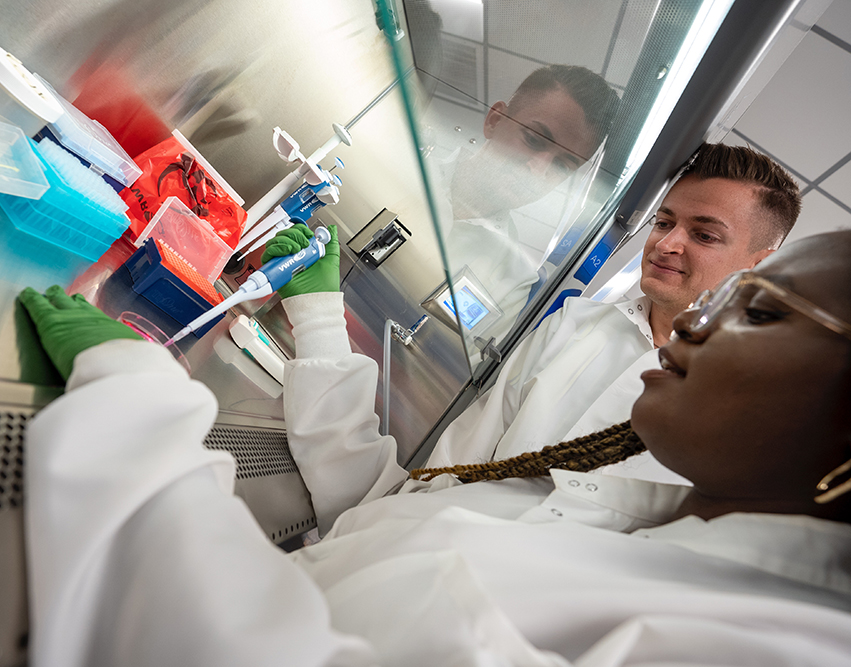
To promote inclusive excellence in science, USC will be offering a new program for undergraduates from historically underrepresented backgrounds with an interest in studying stem cell biology and regenerative medicine.
Known as USC COMPASS: Creating Opportunities through Mentorship and Partnership Across Stem Cell Science, the program will launch with support from a $2.9 million grant from the California Institute for Regenerative Medicine (CIRM), the voter-created state agency charged with distributing public funding to support stem cell research and education.
“USC COMPASS will ensure that all students have the opportunity to successfully complete their chosen paths of study without institutional obstacles that impede progress, and with strong support and mentorship to promote success,” said USC COMPASS Program Director Senta Georgia, a principal investigator at the Center for Endocrinology, Diabetes, and Metabolism at Children’s Hospital Los Angeles, and an assistant professor of pediatrics and stem cell biology and regenerative medicine at USC. “The goal is to recruit, support and train students from historically underrepresented backgrounds to pursue careers in regenerative medicine.”
Given the multidisciplinary nature of regenerative medicine, USC COMPASS will involve three different schools at USC: the Keck School of Medicine, the Viterbi School of Engineering, and the Dornsife College of Arts, Letters, and Sciences.
In Summer 2023, USC COMPASS will welcome its inaugural cohort of up to 10 rising juniors and incoming transfer students at USC. Over the course of four years, a total of 40 COMPASS Scholars will be accepted into the program.
With the support of a $10,000 tuition credit and $1,000 monthly stipend, the Scholars will pursue 12 units of required course work and electives. A new minor in Stem Cell Biology and Regenerative Medicine is currently under review. The minor will be open to all USC undergraduates, and participation in the COMPASS program will partially meet the requirements for the proposed minor.
The scholars will also work with faculty research advisers during the program’s two paid summer internships. During each internship, Scholars will conduct a hands-on laboratory research project and earn a $8,000 summer stipend. The Scholars will also engage in a related bioinformatics or bioengineering project, and a capstone project culminating in a public symposium.
To provide guidance and inspiration for their educational and career journeys, the Scholars will be paired with USC faculty or staff mentors. A distinguished group of external mentors from the biotech industry will provide additional guidance.
Biweekly workshops and seminars will further prepare the Scholars to become leaders in the stem cell field.
“Students will learn about research ethics, gain laboratory skills, bolster their self-confidence, combat imposter syndrome, and engage in ‘fireside chats’ about the lives and career paths of external mentors from a variety of industries and fields,” said USC COMPASS Program Co-director Francesca Mariani, an associate professor of stem cell biology and regenerative medicine, and integrative anatomical sciences.
USC’s program will also set up its graduates for career success by connecting them to a broader COMPASS network across the state. CIRM dedicated $46 million to establishing a total of 16 COMPASS programs, including several at University of California, California State University, and community college campuses. USC is unique in being the only private research university hosting a COMPASS program.
“Through the 16 COMPASS programs, CIRM has demonstrated its ongoing commitment to educating future stem cell leaders who reflect the full diversity of California,” said Andy McMahon, director of the Eli and Edythe Broad CIRM Center for Regenerative Medicine and Stem Cell Research at USC. “We share this commitment, and are proud to be opening pathways to success for our bright and diverse undergraduates through the USC COMPASS program and the opportunity of a minor in stem cell biology and regenerative medicine.”
